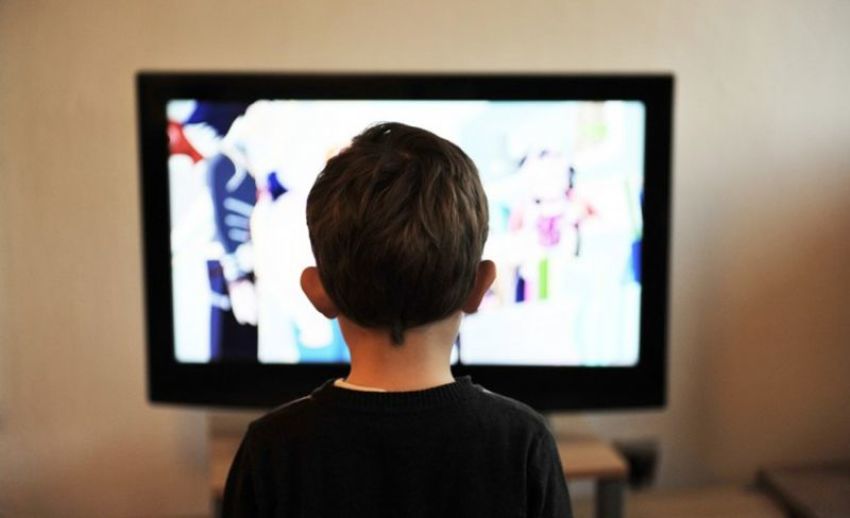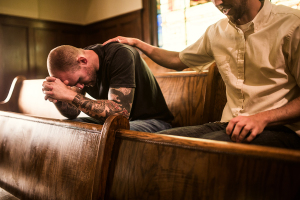The New Fall TV Season: Should We Tune In?

Is it possible to love God with our hearts and our minds—even when we're watching the tube? Here are some thoughts on navigating the new fall TV season.
Here's a dilemma: television programming today offers an unprecedented level of writing, acting, and production quality (think of Sherlock), but also a higher level of explicit content (think Game of Thrones). And now the fall TV season is upon us. From Jim Carrey's new show Kidding to Season 3 of the teen hit Riverdale, there's no shortage of shows that are enticing us and our children.
Of course, some shows—like those with sex scenes or gratuitous violence and nudity—clearly cross the line. But the decision isn't always clear-cut. On one hand, some Christians justify consuming edgy content because it's part of an "authentic" or well-crafted story. My colleague Shane Morris has written on this at length.
Yet others rely on strict rules or ratings to evaluate the shows or movies. But it's hard to be consistent using someone else's ratings. After all, the R-rating of a movie that glorifies violence (like Saw) is clearly not the same kind of R-rating as an historical epic with accurately portrayed violence (like Saving Private Ryan or The Passion of the Christ).
The average action movie contains a lot of gratuitous violence for violence sake. But the violence in some movies is not designed to just shock us or titillate our senses; it forces us to deal with the enormous suffering, self-sacrifice, and heroism that we find in history.
What we all need to navigate a culture full of entertainment and media is discernment. If we really want to live out Jesus' command to love God with all our minds in every area of our lives, we can't simply just plop ourselves in front of the tube and turn off our brains.
In our book "A Practical Guide to Culture," Brett Kunkle and I offer parents and their kids practical steps to actively engage the entertainment they consume, and to do it together. For example, hit the pause button, talk about the story line; identify who the good guys are and who the bad guys are, and more importantly, what makes them the good guys and the bad guys? What are the visuals communicating to us? What's the problem that has to be solved in the story? Is it the right problem? Who is the best one to be able to bring healing and restoration? What worldviews are being presented? How is the show defining concepts like love, truth, happiness, and freedom?
This sort of intentionality, that families can do together, becomes habit-forming. It ought to be normal to think about and to discuss what we're watching, and to do it together, not by ourselves.
It's also crucial to ask ourselves if the amount of media we consume is blunting our ability to love God with our hearts as well as our minds. Are we too comfortable with sinful behavior that grieves His heart? For example, premarital sex is so common in today's storylines, we hardly notice it anymore.
Look, I'm not advocating being legalistic here. Stories ought to tell us the truth about the world, and the truth is, some people have sex outside of marriage. Sin is part of the world, and a story that doesn't include sin can also mislead us. But what we need to ask ourselves is, is this show telling the truth about sin? Is sin being portrayed as sin?
Consider Netflix's hit show, Stranger Things. In the first season, when Nancy sleeps with Steve, the show depicts this decision as not only foolish, selfish, and out of character, but as leading to real-life consequences. But then in season two, when Nancy sleeps with Jonathan, the show portrays this as being desirable, not reckless. For the record, this isn't an endorsement of the show at all, but it's a good example of how powerful storytelling can be and how it can shape our view of the world. Whether we're talking about sex or anything else, we need to consider what vision of life our entertainment is giving us and whether it's reshaping our hearts and our minds.
And by the way, our self-evaluation of entertainment has to include an even more fundamental question: Are we wasting time? Are we using our time wisely? As Neal Postman said three decades ago, the West is at risk of amusing ourselves to death.
To help your family navigate not only entertainment, but all kinds of issues like social media, gender confusion, substance abuse, and more, check out this book A Practical Guide to Culture. We have it at our online book store at BreakPoint.org.
Resources
- John Stonestreet, Brett Kunkle | David C Cook Publishing | 2017
No, 'Game of Thrones' Nudity Isn't 'Meat Sacrificed to Idols'
- G. Shane Morris | Patheos.com | August 23, 2017
Originally posted at Breakpoint.



























